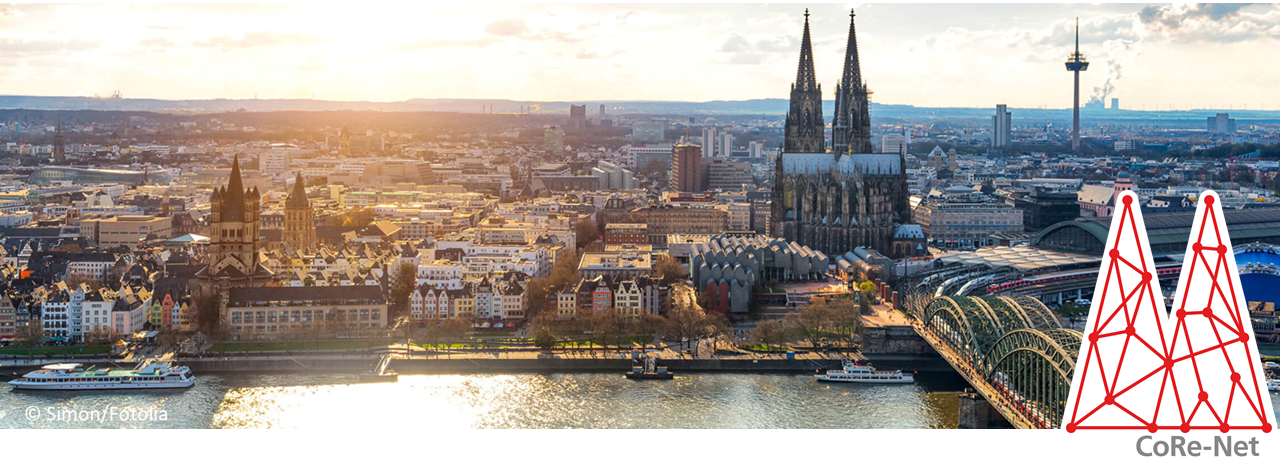The research project CoRe-Net, which started in February 2017 to develop the Cologne Research and Development Network, entered its second funding phase on May 1st, 2020.
As one of a few regions Cologne was chosen by the Federal Ministry of Education and Research for this unique promotion of structural development. CoRe-Net was established to be a long-term and sustainable network making Cologne into a model region for the improvement of health and social care in Germany.
CoRe-Net is an interdisciplinary research association including three faculties:
![]() Faculty of Human Sciences
Faculty of Human Sciences![]() Faculty of Medicine
Faculty of Medicine![]() Faculty of Management, Economics and Social Sciences
Faculty of Management, Economics and Social Sciences
of the University of Cologne.
This interdisciplinary cooperation enables the integration of different perspectives and methods. In addition, there is a close exchange with the institutions in Cologne involved in health and social care.
In times of demographic change, the number of vulnerable patients will increase further. These patients have complex care needs caused by one or several chronic diseases.
The resulting transitions between different health organisations require extensive organisation in order to achieve satisfactory results from a medical, financial and personal point of view. For this reason, value-based healthcare aims to transform care processes and structures towards more patient-centred care while maintaining cost awareness. The development towards a value-based, patient-centred care organisation is both – beneficial and necessary.
CoRe-Net promotes healthcare development according to the principle of learning organisations in order to improve health and social care on the basis of patient-centred, value-based care.
February 2017 until April 2020
The aim of the first funding phase was to create structures that promote the connection between health services research and practice in Cologne and their exchange.
May 2020 until April 2023
CoRe-Net and the research projects set new priorities based on the results of the first funding phase:

